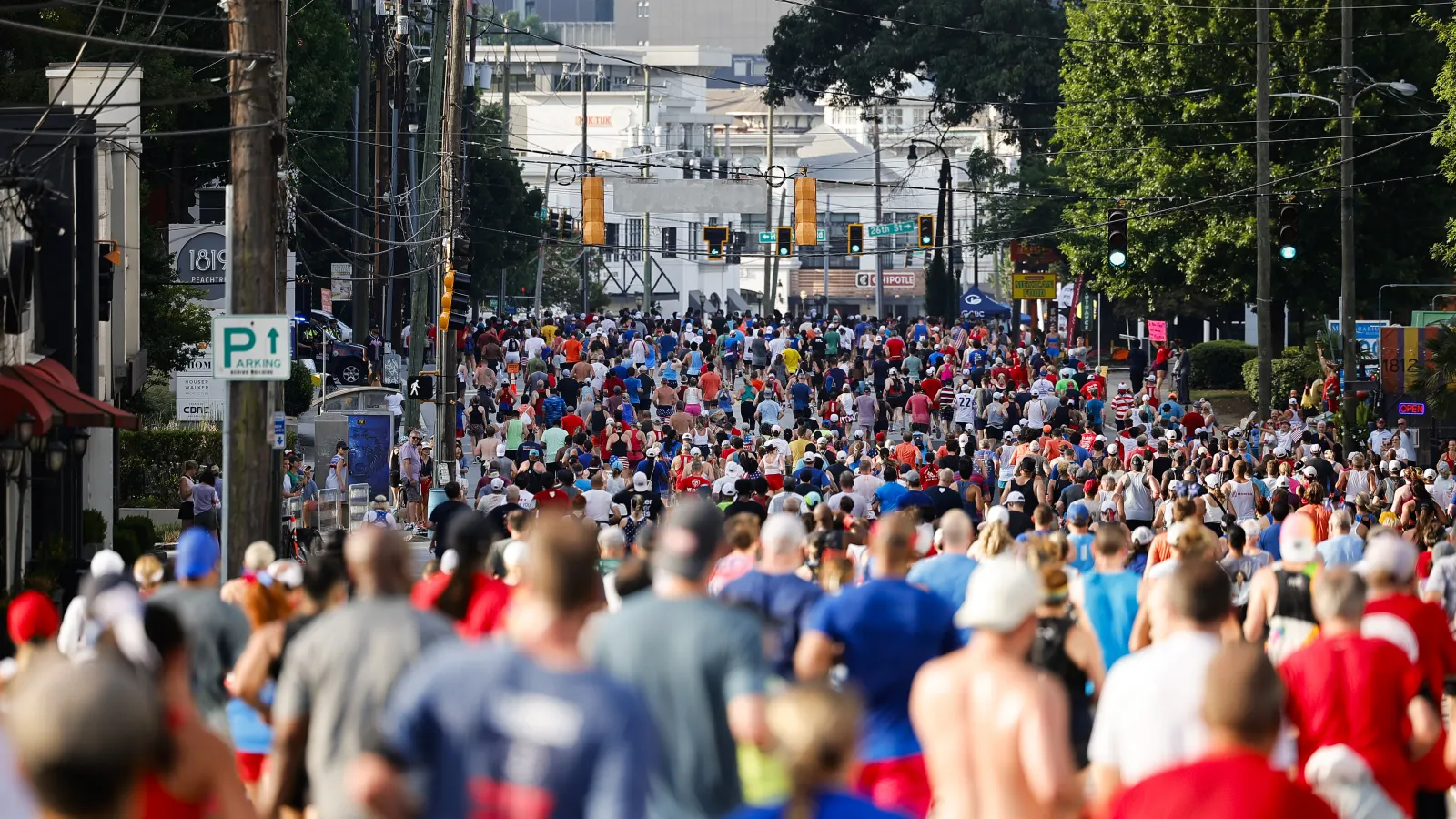
The Importance of Listening to Your Body During Peachtree Training
If I had truly known how to listen to my body, I might not have collapsed while running. I hadn't been feeling great for a while, but I continued to dismiss the quiet warnings my body was sending me. I rationalized that what I felt was normal because I had a one-year-old and was breastfeeding or that I was out of shape and it was hot out. As a lifelong athlete, I was used to pushing through discomfort. Many of us are taught to persevere through pain and fatigue to achieve our goals, often at the expense of recognizing when something is wrong.
My collapse was the catalyst to my diagnosis of Arrhythmogenic Cardiomyopathy (ACM), a rare genetic heart condition that worsens with endurance exercise. While this is a rare case, it underscores the importance of body awareness, especially for runners preparing for events like the Atlanta Journal-Constitution Peachtree Road Race.
Runners often overlook warning signs in the pursuit of performance. We're juggling daily life, training schedules and external demands—sometimes missing what our body is trying to tell us. With the Peachtree now less than three weeks away, it's a good time to check in on how your training has gone and how your body is responding.
While building fitness takes time, the final days before a race are a valuable opportunity to monitor your recovery, maintain hydration and adjust expectations based on how your body is feeling.
Many race-day medical issues happen when runners are undertrained, overtrained or push through warning signs. In these final days, prioritize rest, stay hydrated and make adjustments based on how your body is responding—not how you hoped it would perform.
Hydration is especially important in Atlanta's climate. Many runners know to drink water, but fewer are aware of the risks of overhydration without electrolyte replacement. Drinking too much plain water can cause hyponatremia, a potentially serious sodium imbalance. In hot, humid conditions, it's important to include electrolytes and be mindful of your individual sweat rate and salt loss.
This is also a good time to reflect on how your body has responded to your training. Have hot or humid days made running feel harder? Have you noticed stomach issues with certain foods? How does a lack of sleep affect your performance? Paying attention to these patterns helps you make informed decisions on race day.
Training not only improves cardiovascular fitness, but also helps your muscles, bones and connective tissues adapt to running stress. It also teaches your body how to manage heat. In humid conditions, sweat doesn't evaporate as effectively, making it harder to cool down. Wearing light, breathable clothing, using shade when available and pacing appropriately can all help.
During the race, watch for early signs of heat-related illness such as dizziness, cramping, headache or extreme fatigue. If you notice these symptoms, slow down, seek shade, hydrate and ask for help if needed.
The Peachtree is a longstanding tradition for Atlanta runners. Whether you've trained consistently or are adjusting your plans in the final stretch, listening to your body will give you the best chance for a safe and enjoyable race experience.
Dr. Kate Mihevc Edwards, PT, DPT, OCS, is a running medicine physical therapist based in Atlanta. She is the founder of Precision Performance and Physical Therapy, creator of the RUNsource app, and a passionate advocate for keeping runners healthy and resilient. Follow her @FBrunsource @precisionpt_atl or sign up for her newsletter at www.fastbananas.com.

